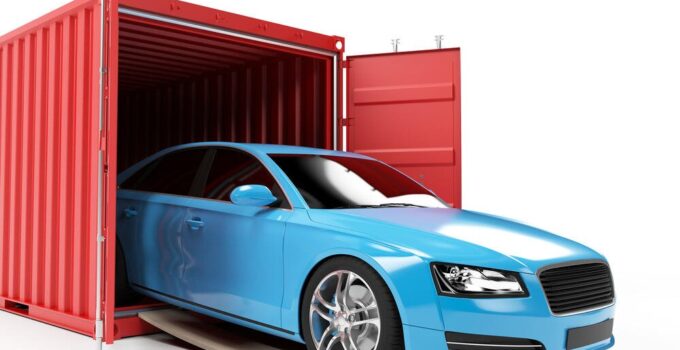The allure of driving a sleek, high-performance German car is undeniable. In 2025, the trend of importing cars from Germany continues to grow, driven by the exquisite craftsmanship, technological superiority, and the sheer joy of driving these engineering marvels. But what does it take to bring a German automobile to your driveway? This comprehensive guide delves into the nuances of costs, tax implications, and the essential steps in the importation process, ensuring that your dream car doesn’t become a logistical nightmare.
Why Importing from Germany?

Source: iamexpat.de
Germany is synonymous with automotive excellence. Renowned for their meticulous engineering, safety features, and luxurious comfort, German cars stand out in the global market. Brands like BMW, Mercedes-Benz, and Audi are not just cars; they are a statement of quality and prestige. The option to customize specifications, coupled with competitive pricing, makes Germany an attractive source for car enthusiasts and savvy consumers alike. This section explores the myriad reasons why importing a car from Germany remains a top choice for many.
Costs Involved in Importing a Car
Importing a car from Germany involves several cost components. The purchase price is just the beginning. Shipping costs, import duties, taxes, and other fees can add up quickly. For instance, shipping can range from a few hundred to several thousand dollars, depending on the service and speed. Import duties and taxes vary significantly based on the car’s value, type, and the importing country’s regulations. This section provides a breakdown of these costs, offering estimated ranges and helping you budget for your dream car.
Tax Implications
Understanding the tax implications is crucial when importing a car. Import duties, value-added tax (VAT), and other local taxes can substantially affect the total cost. The calculation of these taxes depends on factors like the car’s value, engine size, and emissions. However, there may be exemptions or reductions to consider. For instance, vintage cars or models with low CO2 emissions might qualify for lower taxes. This section explains how these taxes are calculated and provides insights into possible exemptions available in 2025. To delve deeper into this subject please read Akcyza za samochód z Niemiec.
Importing Process Overview

Source: expatfocus.com
Navigating the import process requires careful attention to detail. From selecting the right car to dealing with customs clearance and registration, each step is crucial. This section offers a step-by-step guide, outlining the necessary documentation, inspection requirements, and registration procedures. Understanding these steps ensures compliance with regulations and a smooth importation process, making sure your new car is ready to hit the road as soon as possible. It’s essential to familiarize yourself with both German export and your local import regulations, as overlooking a single step could lead to significant delays or additional costs.
Researching the Right Car
Choosing the right car involves more than just selecting a model. It’s about understanding brand reputation, vehicle specifications, and ensuring compliance with local regulations. This section provides tips on researching and selecting a car that meets your needs and preferences while also considering factors like fuel efficiency, emissions standards, and maintenance costs. It also guides where to find reliable information, from official brand websites to user forums and expert reviews. Remember to check the car’s history and whether it meets the specific standards or requirements set by your country.
Shipping and Transportation
Transporting your car from Germany is a critical aspect of the importation process. This section discusses different shipping methods, including container shipping and roll-on/roll-off services. It provides insights into the costs, duration, and safety considerations of each option. Additionally, recommendations for reputable shipping companies are offered, ensuring that your car arrives safely and on time. Consider insurance options for the transit period to safeguard your investment against the unexpected during shipping.
Import Duties and Tariffs

Source: alucare.fr
Import duties and tariffs can significantly impact the total cost of your imported car. This section delves deeper into the factors affecting these duties, such as the car’s value, age, and engine size. It also discusses the role of trade agreements and how they might influence tariffs in 2025, providing a comprehensive understanding of the financial implications of importing a car. Be aware of any changes in trade policies or bilateral agreements between your country and Germany that could affect these costs.
Local Taxes and Registration
Once your car arrives, local taxes and registration become the focus. This section explains the process of registering an imported car, including the documentation required and the fees involved. It also offers tips for navigating the registration process smoothly, ensuring that your car is legally ready for the roads in your country. Remember, registration processes can vary widely, so it’s vital to seek guidance from local authorities or a professional familiar with the specific requirements of your jurisdiction.
Insurance and Warranty
Securing insurance for your imported car is not just a legal requirement; it’s a wise investment. This section discusses the different insurance options available and the importance of understanding coverage details. It also addresses the complexities of warranties and after-sales support for imported cars, guiding you in protecting your investment and ensuring peace of mind. Consider the longevity of the warranty and whether it’s internationally valid or if you’ll need local coverage.
Additional Considerations

Source: drive.suzuki.co.nz
Importing a car is a multifaceted process. This section covers additional factors to consider, such as meeting emissions and safety standards. It also discusses potential challenges and legal issues that might arise, offering resources for seeking legal advice if needed. Understanding these additional aspects ensures a well-informed decision-making process and a smoother importation journey. Be particularly mindful of environmental regulations, which are increasingly stringent and can vary significantly between regions.
Conclusion
Importing a car from Germany in 2025 is an exciting venture, filled with opportunities and considerations. From understanding the costs and tax implications to navigating the importation process, each step requires thorough research and careful planning. This guide serves as your compass, pointing you in the right direction and ensuring that your dream car doesn’t just remain a dream. As you embark on this journey, remember the importance of seeking professional advice, staying informed, and, most importantly, enjoying the ride. Your new German car awaits!







